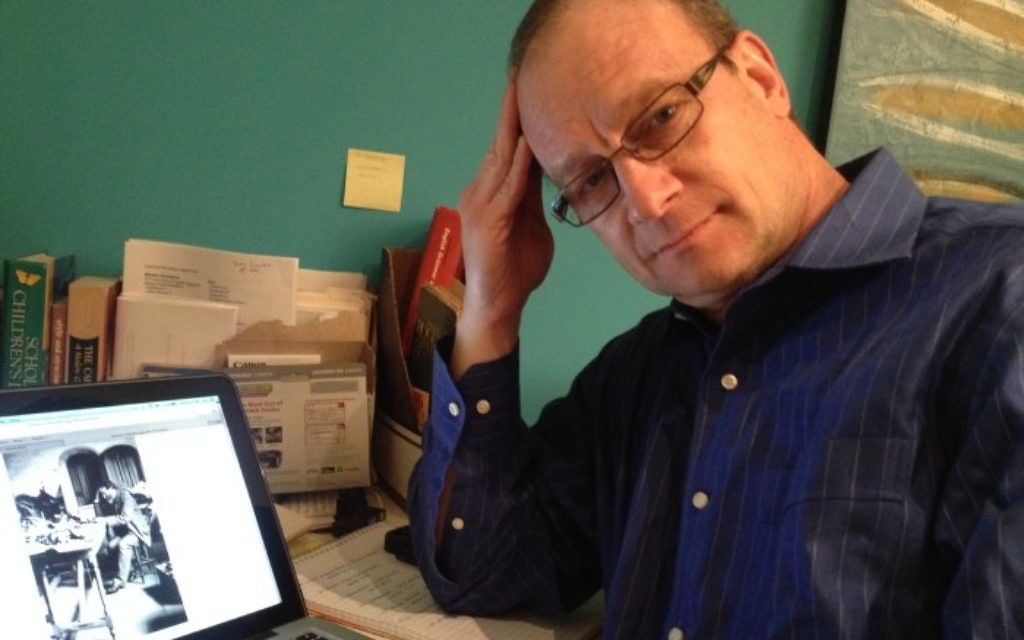In Search of Judeo-Christian Values
We may be the Jew in “Judeo-Christian,” but the more I consider that term, the less certain I am what it means.
The phrase seems particularly popular with Christians, who must feel that Jewish values — about which Jews cannot agree — are in sync with Christian values — about which Christians cannot agree.

I rarely hear Jews use the phrase.
Get The AJT Newsletter by email and never miss our top stories Free Sign Up
Politicians and pundits are fond of saying that this country was founded on Judeo-Christian values.
One presidential wannabe suggested (and later had second thoughts about) creating a federal agency to promote Judeo-Christian values to people in other countries who are neither Jewish nor Christian.
A few months ago, while researching an article on Jewish-Catholic relations, I came across the wartime (World War II) campaign that popularized the term.
In the early 1800s missionaries used the term in reference to Jews who had converted Christianity.
The term evolved to suggest a common heritage for Jews and Christians, presumably in those places and in those periods when the latter was not persecuting the former.
Richard Rubenstein, an American Jewish educator known for his writings on “Holocaust theology,” told German theologians in 1963 that “for almost 2,000 years an honest Judeo-Christian encounter was all but impossible in Europe. … Only in modern times has a beginning been made toward real communication. … A tolerated Judaism can never achieve real encounter with Christianity.”
In the years before World War II, Judeo-Christian became a slogan intended to unite Americans behind a shared set of values.
At the center of this effort was the National Conference of Christians and Jews (known since the 1990s as the National Conference for Community and Justice), founded in 1927 with the goal of “bringing diverse people together to address interfaith divisions.”
Whatever divisions existed (such as Christian bigotry toward Jews and Protestant-Catholic animosity), Judeo-Christian was employed as a banner to counter prejudice (including anti-Semitism) and promote interfaith harmony.
The NCCJ deployed trios of rabbis, priests and ministers to make public presentations.
“This association of individuals who had not previously been seen in public bore a clear message: the longstanding equation of Americanism with Protestantism was antiquated; all three religions were integral to the American landscape,” Professor Wendy L. Wall of the State University of New York at Binghamton wrote in an essay titled “Symbol of Unity, Symbol of Pluralism: The ‘Interfaith Idea’ in Wartime and Cold War America.”
(The NCCJ in 1934 created National Brotherhood Week, which lasted into the 1980s and was lampooned in the early 1960s in a song by mathematician, songwriter and humorist Tom Lehrer.)
The NCCJ pamphlet titled “Why We Fight” described World War II as a “war of ideas between Totalitarian Dictatorship and the Essentials in our Judeo-Christian tradition.”
America had become a nation “nurtured by three ennobling traditions (‘culture groups’): Protestantism, Catholicism and Judaism,” historian Jonathan Sarna wrote in his book “American Judaism: A History.”
The message was carried to the battlefields. By one estimate, military chaplains distributed more than 8 million pieces of NCCJ literature to American GIs during World War II.
Postwar, Judeo-Christian values were invoked in a good-vs.-evil Cold War against “godless communism.”
Today, Judeo-Christian is used (abused) by some politicians and pundits to define peoples or faiths considered to be outside this supposed American mainstream. The phrase has become exclusionary in a country created to be inclusionary.
The best values of Judaism, as I know them, and the best values of Christianity, as I understand them, are not exclusionary. These values encourage peoples of many faiths to engage and work together with the goal of improving the human condition.
In the coming weeks, as the presidential campaign moves southward, into the region where religion supposedly holds greater sway, we’ll hear more from politicians and pundits about Judeo-Christian values.
We who put the Jew into Judeo-Christian should seek the noblest aspects of that idea and be wary of its use to divide or exclude.





comments